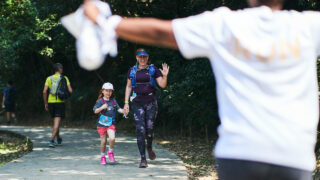We chat with cardiologist Dr David Lo Ka-Yip about advances in the drugs used to prevent blood clots, and clear up some misconceptions around the notion of “blood thinners”.
What drew you to cardiology as a specialty?
One of my family members suffered from heart disease when I was a medical student – that’s how I first became interested in this subject. It combines the skills of a physician and those of a surgeon. Surgeons usually concentrate on operation and procedure, while a physician treats the patients with drugs without operation. In cardiology, we do both at the same time. I think this makes it a very challenging and interesting specialty.
What are some of your key interests or areas of research within cardiology?
My special interest in cardiology is complex Percutaneous Coronary Intervention – PCI in short. Complex PCI includes intervention in complicated conditions such as triple vessel disease and left main coronary artery disease, and in patients with very calcified vessels.
Recently, I’ve been using a smaller sized catheter in PCI procedures – the “snuff box” approach. In the past, coronary intervention has generally been done via the femoral artery, which is a big artery in the leg. In the past 10 years, we’ve started using the radial artery in the wrist instead. Today, we can carry out the procedures via the even smaller distal radial artery, using this snuff box approach. The beauty of the snuff box approach is easy haemostasis; that means we can stop bleeding much more readily as the arteries are tiny.
I’m also interested and experienced in new pacemaker technology – the Leadless pacemaker implantation. This smaller and leadless pacemaker is an attractive option for suitable patients with bradycardia.

Speaking of new approaches, how have medications for blood clots changed in recent times?
In the past, when we talked about anticoagulation, we would generally be referring to warfarin. However, warfarin is not an ideal medication for many patients; for example, frequent blood taking is needed to keep the clotting profile within the therapeutic range.
Recently, a new anticoagulant emerged – the NOAC. The bleeding risk of NOAC is lower when compared with warfarin; also, patients on NOAC do not need frequent blood taking. So, it reduces their suffering as it means less frequent blood taking, and therefore less travelling time to the hospital or clinic. In short, NOAC is a drug with the same effectiveness but a higher safety profile than warfarin.
Can you explain the difference between antiplatelet and anticoagulant drugs? Which category does aspirin fit into? Which one is a “blood thinner”?
These two classes of medications confuse many patients. Both are antithrombotic medications because they prevent the formation of blood clots. However, anticoagulants prevent clots by intervening in what’s known as the “clotting cascade” in our blood; examples include warfarin and the new oral anticoagulant, the NOAC. These anticoagulants are what we might refer to as blood thinners.
Antiplatelets also stop the formation of blood clots, but their pathway is mainly through inhibiting the function of the platelets in our blood; so, they are platelet inhibitors. Aspirin is one of these inhibitors; it’s not an anticoagulant. It’s therefore incorrect to refer to aspirin as a blood thinner.
What are platelets, and what conditions can antiplatelet drugs help to treat?
In our blood, we have white blood cells, red blood cells and platelets. Platelets help us stop bleeding when we have a wound by activating the formation of a clot; so, their function is to help our body to stop bleeding. Antiplatelet agents – aspirin, for example – try to inhibit the function of the platelets so that blood vessels form clots less easily.
Antiplatelet medicines are usually used in the secondary prevention of coronary artery disease and cerebrovascular disease. For patients who have diagnosed with coronary artery disease or have a history of stroke, we use antiplatelet agents such as aspirin or a P2Y12 inhibitor.
What about anticoagulant drugs – who do they help to treat, and how do they work?
Anticoagulants also help our body by preventing the formation of blood clots; they’re useful in treating blood clot disease in both veins and arteries. Specifically, they help preventing deep vein thrombosis or pulmonary embolism, in which a blood clot is formed in the pulmonary artery. Nowadays, anticoagulants are also very commonly used in patients with atrial fibrillation (AF). In AF patients, blood clots may form in the left atrium, and when these clots go into the cerebral vessels, it can result in stroke. Therefore, patients with AF are frequently prescribed anticoagulants to prevent the formation of clots and the occurrence of stroke.
Would a patient typically be prescribed only one of these, or are there instances where they might be given both?
Patients usually only require one type of antithrombotic medication. If they receive antiplatelets, they usually won’t need anticoagulants, and vice versa. But there are some exceptions – one example is a patient with a history of AF who is then found to be suffering from coronary artery disease. While they may already be taking anticoagulants for their AF, to prevent stroke, they may also need a stent in their coronary artery and then antiplatelet medication after stenting.
What are the risks of bleeding in those instances?
Both antiplatelet and anticoagulant therapy may result in bleeding, so if you are using a combination of the two, the risk is much higher. How can we prevent bleeding? Firstly, we avoid using both drugs at the same time. If a patient is taking an anticoagulant for AF and now needs a stent and antiplatelet medication, we will try to minimise the duration of taking both classes of drugs to at most one year. After a year, we stop the antiplatelet, and only give the anticoagulant. Secondly, we can prescribe a gastric protective medication to reduce the risk of bleeding in the stomach. The stomach is one of the most common bleeding sites, but gastric protective medication – the most used of which is the proton pump inhibitor (PPI) – can reduce the incidence of this. Therefore, we will prescribe a PPI to patients on antiplatelet and an anticoagulant drugs.
What would you say are the key factors in maintaining good heart health?
Lifestyle modification is the most essential. Diet, exercise and relaxation are all important, especially for Hong Kong people who are well-known to be always under stress. With regards to diet, we recommend a low sugar, low fat, low salt and high fibre diet with lots of vegetables.
Secondly, patients should do regular exercise; we recommend 30 minutes of medium-strength exercise every day. Alternatively, we should aim for 150 minutes of exercise every week if we can’t do something each day. Last but not the least, “prevention is better than cure”; an annual body check is crucial in promoting preventative healthcare. In general, all adults over the age of 18 should get checked once every one to five years, whereas people aged 45 and above should do it yearly. All the above is crucial to maintain a healthy life.
What do you like to do in Hong Kong when you’re not working?
I like to run, play badminton with my colleagues, and take my dog for a walk in the countryside.
Dr Lo is currently the Resident Consultant in Cardiology at Hong Kong Adventist Hospital – Stubbs Road; he earlier worked as Consultant Cardiologist and Director of Cardiac Intervention Center in a public hospital in HK.
See more in our Health & Fitness section.





